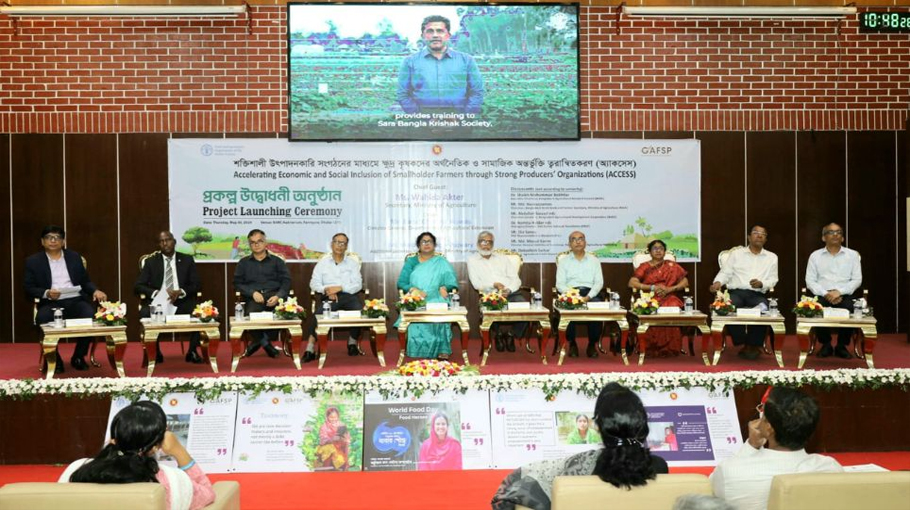FAO launches climate smart ACCESS project

The Food and Agriculture Organisation of the United Nations (FAO), along with the agriculture ministry and Sara Bangla Krishak Society (SBKS), launched the Accelerating Economic and Social Inclusion through Strong Producers’ Organisations in Bangladesh (ACCESS) project on Thursday.
ACCESS aims to empower over 40,000 smallholder farmers residing in climate hotspots across Bangladesh.
It was revealed at the launching programme, held in Dhaka, organised by FAO and Bangladesh agriculture ministry, according to a FAO release.
Members of the farming community, government organisations, private sector and development partners participated in the event.
The Secretary of Agriculture, Wahida Akter joined as chief guest and said “In order to reach the last mile for the community who is struggling with the effects of climate change, we must innovate inclusive business model like the ACCESS project, which facilitates tangible collaboration among producer organisations, and the public and private sector”.
Dia Sanou, FAO representative in Bangladesh said “FAO works with smallholder producer organisations as our partners to strengthen rural livelihoods as part of ACCESS project. Together we will focus on agri-business clusters and support smallholders to transform their subsistence farms into successful businesses.”
Participants from various organisations including Bangladesh Krishi Bank, PKSF, Bangladesh Bank, Bangladesh Agricultural Development Corporation, the Department of Agricultural Extension and the Bangladesh Agricultural Research Council were also on the panel and discussed potential support that their organisations can provide.
Md Nasiruzzaman, chairman, Bangladesh Krishi Bank said, “The Access project is a timely initiative for commercial farmers in climate-hotspot areas. Among other activities, it aims to make agricultural credit available to small farmers.”
“However, in addition to providing loans, the Ministry of Agriculture should also focus on developing agricultural insurance policies. The recent damage caused by Cyclone Remal to coastal fisheries and livestock highlights the urgent need for such insurance,” he said.
Dr Imanun Nabi Khan, FAO coordinator for ACCESS, and Rita Bramma, president of SBKS, presented the keynote paper at the inauguration. They introduced an inclusive business model focused on partnership and empowering smallholder farmers through mobilising strong producers’ organisations in climate hotspots in Bangladesh.
Following the inaugural session, an informal working session took place between FAO, SBKS and almost 100 members of the farming community from climate hotspots.




